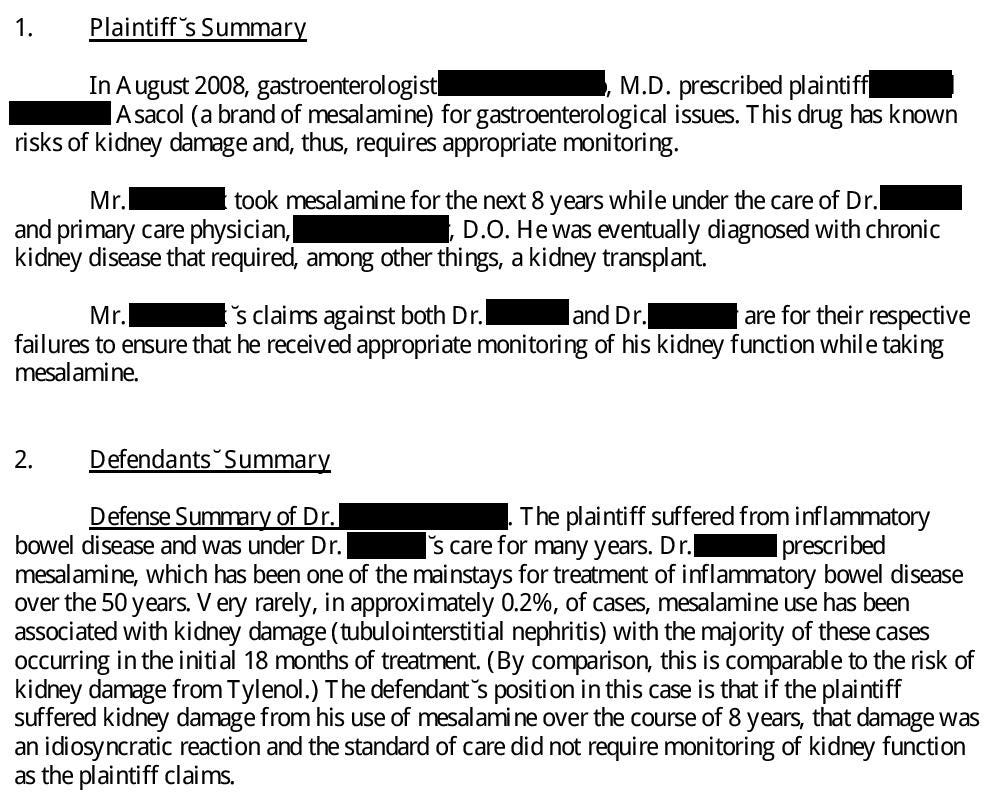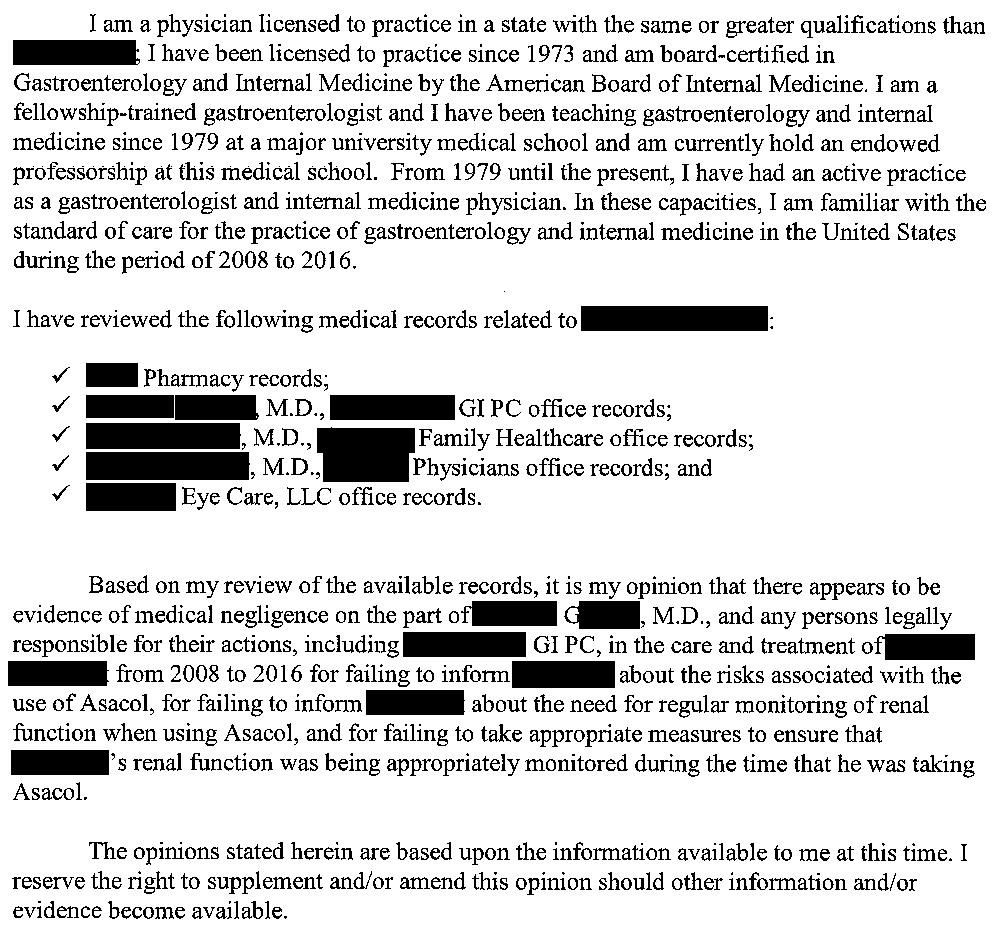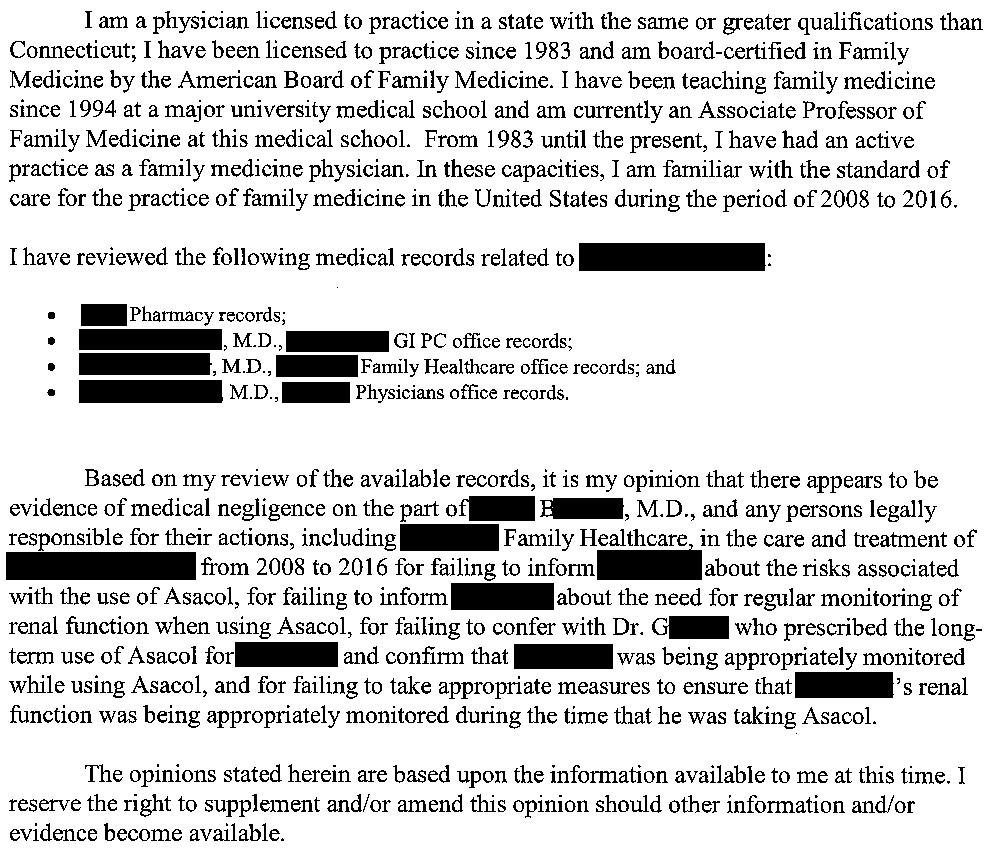In August 2008, a 28-year-old man was referred to GI for abdominal pain and bloody diarrhea.
A colonoscopy was done and he was diagnosed with ulcerative colitis.
The patient began treatment that included mesalamine.
He continued treatment for the next 8 years, seeing both his primary care physician and the GI specialist.
Between 2011 and 2016 the patient did not have any appointments with his PCP.
In 2016, he re-established care and his PCP ordered screening labs.
The results showed stage IV kidney disease.
A kidney biopsy was done and he was diagnosed with interstitial nephritis.
The patient’s GI physician and the pathologist both documented that the cause of his kidney failure was the mesalamine he had been taking.
The patient ultimately received a kidney transplant.
The patient contacted an attorney and a malpractice lawsuit was filed against his PCP and the GI specialist.
The primary alleged negligence was a failure to check labs from 2008 to 2016.
A joint report was filed, describing the 2 opposing viewpoints:
Join thousands of doctors and attorneys on the email list.
Free and paid options available.
The plaintiff hired a GI expert witness and an FM expert witness.
Their reports are essentially the same:
The plaintiff has offered to settle:
The lawsuit is ongoing. A trial has not yet been scheduled.
I’ll update readers as this case progresses towards trial.
Become a paid subscribers for only $180/year to get case updates and unique insights.
MedMalReviewer Analysis:
It is unfortunate that this patient did not follow-up with his primary care physician for many years. His PCP should get credit for ordering labs and making the diagnosis once care was re-established, but instead is now being slapped with a lawsuit.
Here is an excellent review of interstitial nephritis from mesalamine. They found that it is much more common in young males with ulcerative colitis. This pattern exactly fits this case. The authors suggest that patients should have their labs checked every 6 months.
The review above is only 3 pages and I’d highly recommend it if you prescribe mesalamine or take care of patients who take it.This drug is referred to as both mesalamine and mesalazine (as well as numerous trade names, in this case Asacol). I could not find any literature to explain why there are two different generic names. I am sure there is some obscure trivia regarding this that can be used to impress students on rounds. I would be curious to hear from any pharmacists or other specialists who have insight into the history of both names!
Previous Cases:
Kidney Biopsy Leads to Hemorrhagic Shock
Patient has a kidney biopsy, Lovenox started several hours later. Patient has massive hemorrhage, started on pressors, which cause ischemia and amputation of 9 fingers.
Missed Perforated Duodenal Ulcer
Patient has several ED visits for abdominal pain, CT scan not repeated due to concern about over-utilization of imaging. Ultimately diagnosed with perforated viscus.
Parents allege that their child’s distal tibia fracture was missed by the ED physician after the patient was struck by a vehicle.










The PCP getting slapped with a lawsuit for this is ridiculous when the patient didn’t go to the doctor for 5 years or whatever it was
How did the patient keep getting mesalamine for 5 years without an appointment? Was he just getting automatic refills or was the PCP just sending in new prescriptions? If that were the case I can see this being ruled in favor of the plaintiff.